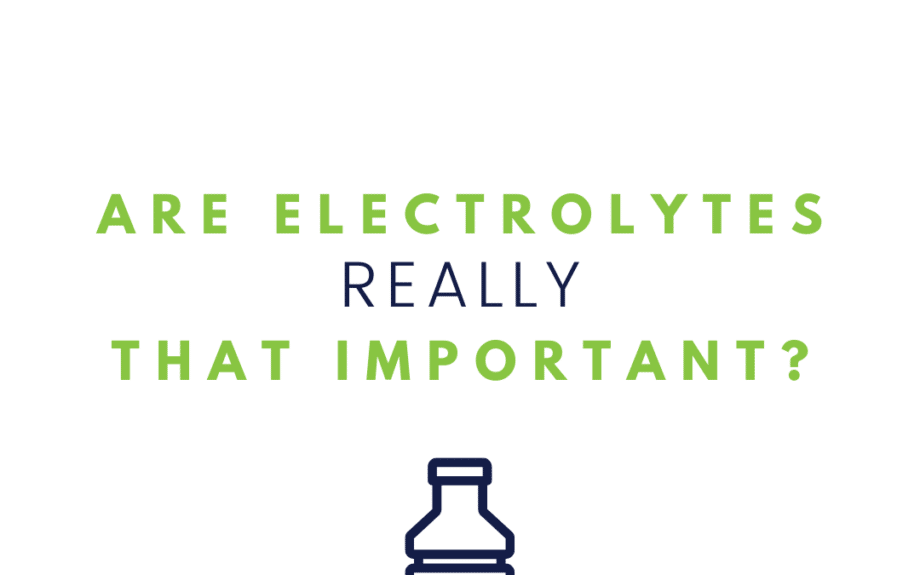You have probably seen the sports drink commercials going on about how important electrolytes are for athletes and you may have used the same sports drink for *cough cough* other reasons, but how important are they really?
Electrolytes play a vital role in your body’s overall well being. They provide energy to individual cell function, maintain hydration levels, power nervous system and muscle function and most importantly regulate your heart function. Athlete or not, they are vital to a healthy functioning body. The top electrolytes you may recognize are sodium, potassium, magnesium and calcium. If any of these vital minerals become imbalanced, by either having too much or too little in your system, it can cause serious side effects.
If you pay attention to your body, you may be surprised how easy it is to tell if your electrolyte levels are off because the side effects will not only be noticeable, but can seem severe.
4 Electrolytes You Can’t Live Without
1. Sodium Supports Water Regulation
Too much sodium in your body may result in dehydration. If you have ever been dehydrated, you may know that it makes you feel nauseous, fatigued and extremely weak. Too little sodium, on the other hand, can result in over-hydration, or water intoxication. In both cases, cells begin to malfunction and your body will be uncomfortable. Roughly 90% of Americans are consuming too much sodium. The main source of sodium is through processed or restaurant foods.
2. Potassium Supports Brain and Muscle Function
Potassium imbalances (too much or too little) will generally effect your heart and muscle function. Too much potassium can lead to heart rhythm problems while too little can lead to a significant decrease in insulin production. Potassium assists in generating the electrical impulses needed for your body’s cells to communicate to each other ensuring your body is working to the best of its ability. Over 90% of American diets do not contain enough potassium.
3. Calcium Supports Bone Growth
Like potassium, too much calcium can lead to heart rhythm irregularities. Additionally, it can cause mineral deposits in organs, including kidneys, and sometimes effect your mental health by making you feel extremely fatigued and gloomy. Too little calcium is often found in humans with unhealthy eating patterns and can show signs such as fragile bones, sadness, confusion, and/or muscle cramps. Between 30-40% of the US population are not absorbing enough calcium in their current diet.
4. Magnesium Supports Muscle Relaxation
Magnesium is an electrolyte that is often forgotten but is closely related to sodium, potassium and calcium levels. It is an extremely important mineral regulating muscle contraction and relaxation. Too much magnesium can be related to low calcium and/or high potassium levels and can cause heart rhythm disturbances, muscle weakness or digestive discomfort. Too little magnesium, is a sign of malnutrition, excess alcohol or caffeine consumption, or overall dietary deficiencies. Signs can include muscle cramping and/or weakness. Up to 50% of Americans are not getting the amount of magnesium they need on a daily basis.
So, now that we have a better understanding of what electrolytes are and how the imbalances can effect your body, the question is: how do we stay balanced?
Paying attention to the minerals you are getting daily from your diet is a great place to start. If you think you are lacking in a specific area, consider supplementation to get you back on track. If you exercise regularly, be sure to stay hydrated and replenish with an electrolyte-spiked drink before and (especially) after your workout routine. Whenever you are sick, your body tends to lose a lot of fluids, so this is also a great time to double up on electrolytes either through your diet or by extra supplementation.
The short answer to the question, ‘Are electrolytes really THAT important?’ is yes! If electrolyte levels are not balanced, you could face serious consequences no matter who you are. Electrolytes assist in so many of the body’s processes. Without them you are sure to break down.

